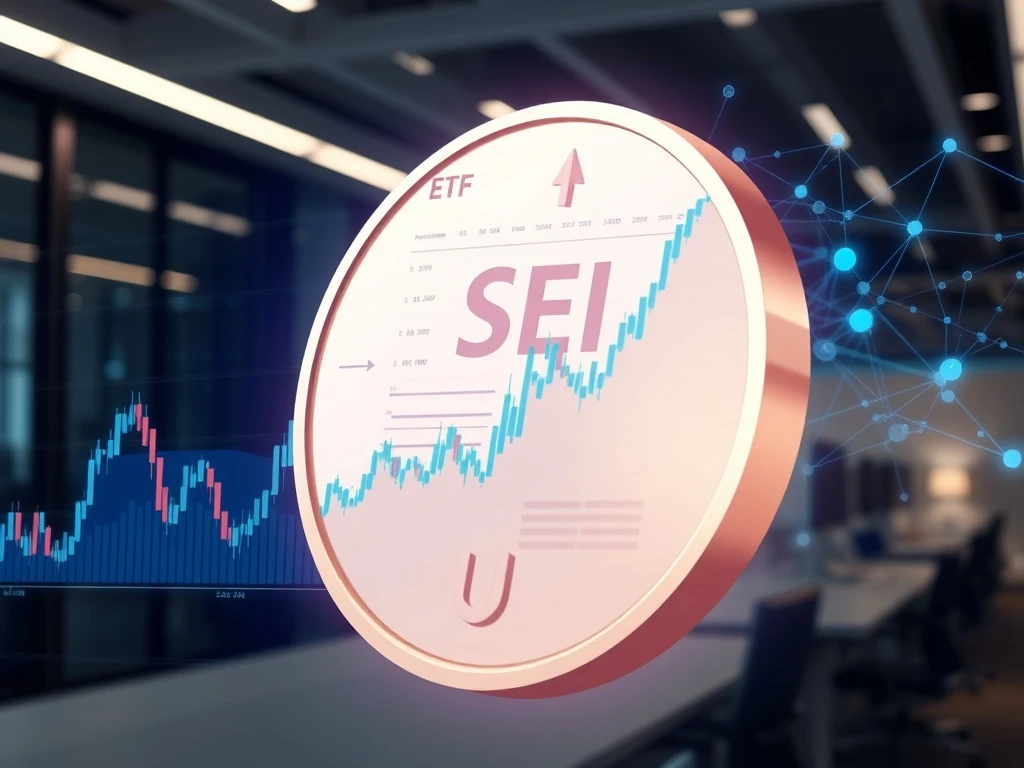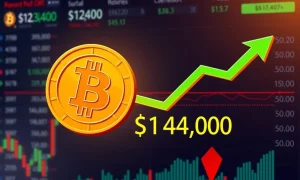Major cryptocurrency asset manager 21Shares has officially entered the competitive SEI ETF race, filing with the SEC to launch an exchange-traded fund tracking Sei Network’s native token. This strategic move positions the firm directly against Canary Capital, which filed its own SEI ETF application in April, creating an intense competition for first-mover advantage in the expanding crypto ETF market.
Understanding the SEI ETF Landscape
21Shares submitted its S-1 registration statement on Thursday, proposing to use CF Benchmarks for price tracking. The SEI ETF would provide investors with exposure to SEI, the native token of the Sei Network launched in August 2023. This layer-1 blockchain specializes in trading infrastructure for decentralized exchanges and marketplaces, making the SEI ETF particularly attractive for investors seeking diversified crypto exposure.
Key Features of the Proposed SEI ETF
Coinbase Custody Trust Company will serve as the custodian for the SEI ETF. Importantly, 21Shares is exploring staking possibilities to generate additional returns. However, the company emphasized it must first ensure no undue legal, regulatory, or tax risks exist. The SEI token currently trades at $0.30 after gaining 4.2% in the last 24 hours, ranking 74th by market capitalization on CoinGecko.
Competitive Dynamics in SEI ETF Race
Canary Capital’s April application promised direct exposure to staked SEI with passive income through staking rewards. Justin Barlow of the Sei Development Foundation noted that ETFs serve as crucial adoption gateways, bridging crypto and mainstream markets. The simultaneous filings create a compelling race for regulatory approval and market positioning.
Broader Crypto ETF Expansion Trends
21Shares already manages several successful ETFs, including the ARK 21Shares Bitcoin ETF. The company has additional applications pending for SUI, XRP, and Ondo tokens. Other major issuers like VanEck, Bitwise, and Grayscale have submitted Solana ETF applications, while some pursue products tied to XRP, Cardano, and even Dogecoin.
Regulatory Environment and Approval Process
The SEC is reportedly developing a simplified listing structure that could automate significant portions of the approval process. Under this potential new system, issuers would submit standard S-1 forms and wait 75 days. If the SEC raises no formal objections, the ETF would automatically approve, potentially reducing regulatory friction.
Market Implications and Investor Impact
The SEI ETF competition reflects growing institutional interest in alternative cryptocurrency exposure beyond Bitcoin and Ethereum. Successful approval could open pathways for numerous other crypto ETFs, significantly expanding accessible investment products for both institutional and retail investors seeking diversified digital asset exposure.
Frequently Asked Questions
What is a SEI ETF?
A SEI ETF is an exchange-traded fund that tracks the price of SEI token, allowing investors to gain exposure to the cryptocurrency without directly purchasing or storing it.
How does 21Shares’ SEI ETF differ from Canary Capital’s?
Both propose similar structures, but differences may emerge in custody arrangements, staking strategies, and fee structures as details become available during the SEC review process.
When might the SEI ETF receive approval?
Approval timing depends on SEC review processes, which typically take several months. The new automated system could potentially accelerate this timeline if implemented.
Can investors earn staking rewards through the ETF?
21Shares is investigating staking possibilities, but final determination depends on regulatory clarity and risk assessment regarding staking operations.
What makes SEI Network unique for ETF consideration?
SEI Network specializes in trading infrastructure for decentralized exchanges, positioning it uniquely within the blockchain ecosystem focused on financial applications.
How will the SEI ETF affect SEI token’s market position?
ETF approval typically increases institutional demand and liquidity, potentially positively impacting the token’s market capitalization and trading volume.








